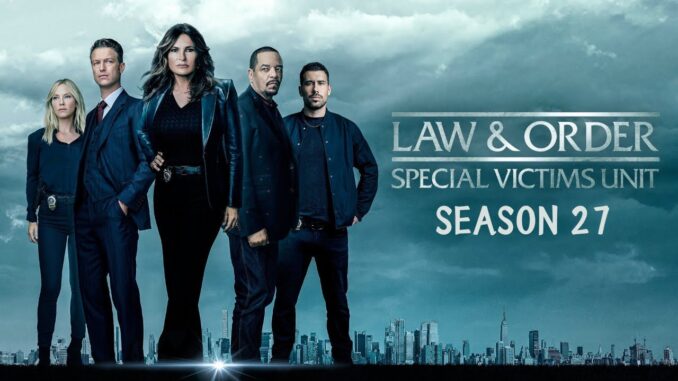
The Thin Blue Line Blurred: Law & Order SVU Tackles Its Most Controversial Case Yet
The sterile, fluorescent glare of the Special Victims Unit office feels different tonight. The usual hum of frantic keyboard taps and clipped phone calls is replaced by a thick, suffocating silence. Olivia Benson, her face etched with lines of exhaustion and a steely determination, leans back in her chair, the weight of the case pressing down on her like a physical burden. This isn't just another story ripped from the headlines; this is a case that forces the team to confront the very core of their beliefs, to question the boundaries of their own power, and to navigate the treacherous waters where justice and public opinion collide. This is, without a doubt, their most controversial case yet.
The catalyst for this storm is Elijah Vance, a celebrated Black activist and community leader, accused of sexually assaulting a white woman, Sarah Miller, during a protest rally. The accusations are explosive. Vance, a man who has dedicated his life to fighting for the marginalized and oppressed, now stands accused of the very crime he has spent his life railing against. The city is a powder keg, ready to explode. On one side, Vance's supporters vehemently defend his innocence, citing his unwavering commitment to social justice and questioning the timing and motivations behind Miller's accusation. They paint a picture of a vindictive woman, possibly manipulated by forces seeking to discredit a powerful voice for change. On the other side, Miller's supporters demand justice, highlighting the insidious nature of sexual assault and the need to believe victims, regardless of the alleged perpetrator's social standing.
The case immediately exposes the fault lines that run deep within the city. Race, class, and power dynamics become inextricably intertwined with the investigation, making every move, every question, a potential landmine. Fin, ever the pragmatist, is acutely aware of the political ramifications. "This ain't gonna be easy, Liv," he warns, his voice laced with a weariness that speaks volumes. "Everyone's got an angle, and nobody's lookin' for the truth. They just want to be right."
The investigation is a tightrope walk. Carisi, with his legal acumen, wrestles with the complexities of the evidence. Is Miller's account credible? Are there inconsistencies? Can they separate the noise of public opinion from the cold, hard facts? He grapples with the pressure to achieve justice while navigating the minefield of potential biases, both conscious and unconscious, that could taint the investigation.
Olivia, as always, is caught in the middle. She understands the pain and trauma that Miller has allegedly suffered, and she is fiercely protective of all victims. Yet, she also recognizes the potential for abuse within the system, the power to weaponize accusations and silence dissenting voices. She refuses to be swayed by the public outcry, clinging to the principle of due process and the unwavering pursuit of truth, even when that truth is deeply uncomfortable.
The courtroom scenes are electric. The prosecution attempts to paint Vance as a predator, exploiting his position of power. The defense counters with a narrative of a smear campaign, highlighting Miller's past and suggesting ulterior motives. The jury, a microcosm of the city, grapples with their own preconceived notions and biases. The verdict hangs heavy in the air, not just determining Vance's fate, but also potentially sparking a full-blown societal conflagration.
Ultimately, the "controversial case" isn't just about Elijah Vance or Sarah Miller. It's about the very fabric of the justice system itself. It forces the SVU team to confront their own biases, to acknowledge the limitations of their power, and to understand that sometimes, the truth is not a clear-cut victory, but a complex and often agonizing compromise. It's about acknowledging that even within the hallowed halls of the justice system, prejudice and political maneuvering can seep in, distorting the scales and blurring the thin blue line.
In the end, whatever the verdict, the case leaves a lasting mark on the SVU. Olivia, Fin, and Carisi are forever changed by the experience, forced to confront the uncomfortable realities of a world where justice is often elusive, and where the pursuit of truth can be a dangerous and deeply controversial path. The silence in the office after the verdict is delivered is even heavier than before, a somber reminder that sometimes, even the most dedicated agents of the law can only do their best, and hope that their efforts, however imperfect, contribute to a more just and equitable society. The case serves as a potent reminder: the fight for justice is never truly over, and the pursuit of truth demands constant vigilance and a willingness to confront the uncomfortable truths that lie within ourselves and within the system we strive to uphold.
